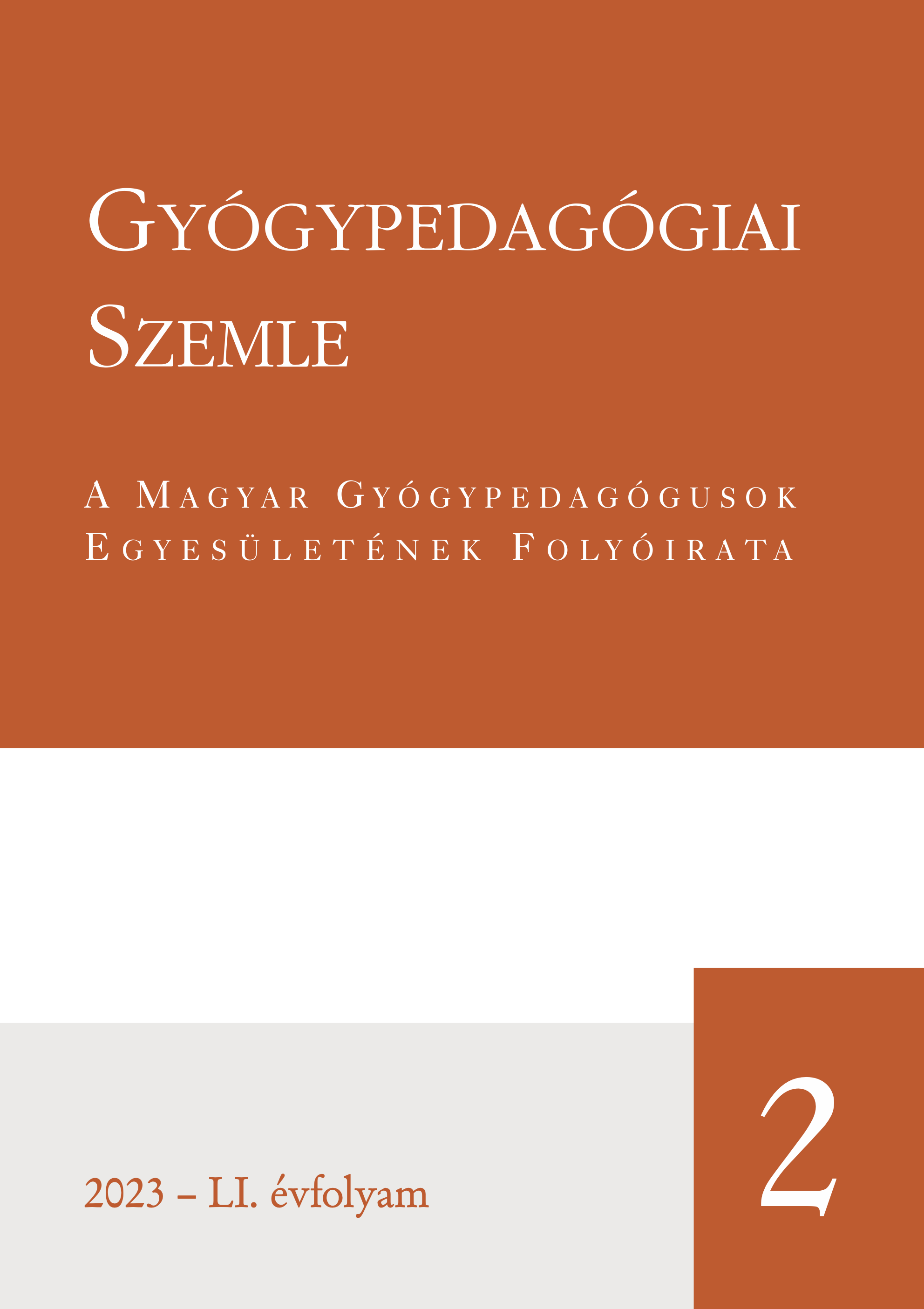ICT tools for special needs education - International practice in the use of assistive technologies in the education of children with learning disabilities Systematic literature review
DOI:
https://doi.org/10.52092/gyosze.2023.2.1Keywords:
ICT, learning disability, skills development, methodological knowledgeAbstract
Background and Aims: The use of ICT tools in both the teaching process and the organisation of learning can play a relevant role in the education of students with learning disabilities. There is still little scientifically reliable data in the domestic special education literature on how, with what purpose and in what framework the use of these tools is organised in education. The aim of our study is to systematically review the international literature to explore (1) which ICT tools are typically used in the education of students with learning disabilities, (2) the purpose for which these tools are used in education, (3) the use of the tools by the special needs teacher and/or the students, (4) the typical way in which the tools are used, and (5) the ways in which ICT tools support differentiation in the teaching-learning process.
Method: A systematic literature search was conducted in February 2022 in the EBSCO database. After applying predefined inclusion and exclusion criteria, 13 studies were included in the analysis.
Results: The ICT tools used are diverse, it is difficult to single out any one group, but the more diverse presence of applications (apps) is evident. ICT tools are mainly used for skills development (e.g., academic skills/competences, skills relevant to STEM fields) and are therefore typically used by learners in individual work. In differentiated learning organisation, the use of ICT tools is based on the application of different levels of difficulty or different task types. The use of ICT in an instructional or constructionist approach highlights an important dimension.
Conclusions: the appropriate selection and use of ICT tools is also based on the methodological knowledge and creativity of the teacher, and the use of ICT tools developed for non-specific target groups can thus allow flexible, adaptive and multifaceted differentiation.
Keywords: ICT, learning disability, skills development, methodological knowledge

